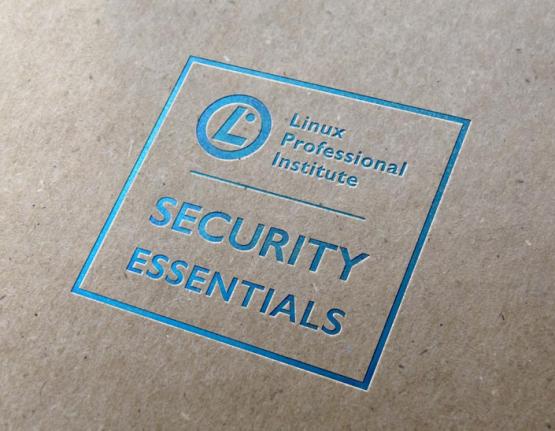Learn how to protect your data and reputation
IT security is absolutely crucial for individuals and organizations in today’s digital world. The general ability to protect data, devices and networks is a fundamental skill for the responsible use of information technology. Obtaining the Linux Professional Institute Security Essentials certificate is a fantastic way to learn how to protect yourself and to demonstrate your knowledge and expertise in the field to potential employers and clients.
The Security Essentials exam covers preliminary knowledge in all important fields of IT security. The certificate is intended for students who had their first course in IT security, for all members and staff of organizations that want to improve their IT security as well as for individuals who want to attain a basic competence in the secure use of information technology.
Current version: 1.0 (Exam code 020-100)
Objectives: 020-100
Prerequisites: There are no prerequisites for this certificate
Requirements: Pass the Security Essentials 020 exam
Exam format: 40 questions and must be completed within 60 minutes
Validity period: Lifetime
Cost: Click here for exam pricing in your country.
Languages for exam available in VUE test centers: English
Languages for exam available online via OnVUE: English
To receive the Security Essentials certificate the candidate must:
- have a basic understanding of common security threats of using computers, networks, connected devices, and IT services on premises and in the cloud;
- understand common ways to prevent and mitigate attacks against their personal devices and data;
- be able to use encryption to secure data transferred through a network and stored on storage devices and in the cloud;
- be able to apply common security best practices, protect private information, and secure their identity; and
- able to securely use IT services and to take responsibility for securing their personal computing devices, applications, accounts, and online profiles.
The Security Essentials certificate validates a demonstrated understanding of the following:
- Security Concepts
- Encryption
- Node, Device and Storage Security
- Network and Service Security
- Identity and Privacy
